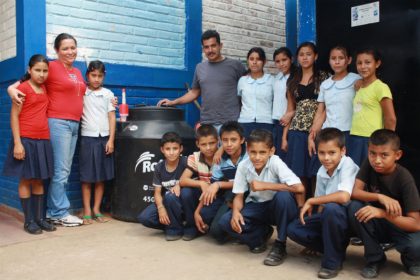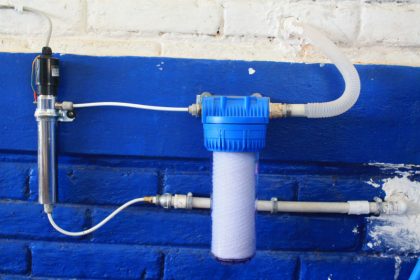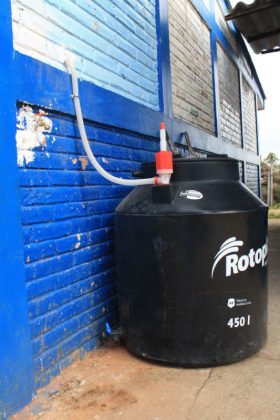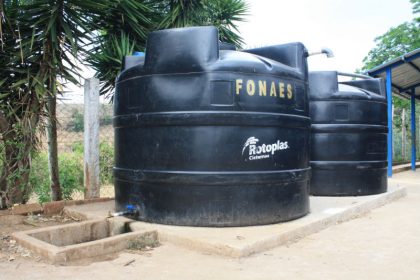 Location
Location
Palo Verde, San Julian, Sonsonate, El Salvador
Community Description
Palo Verde is a very remote, rural, and poor community in southwestern El Salvador, consisting of 48 houses and 334 people.
The vast majority of male community members are sustenance farmers. Females tend to not work and stay at home to care for the home and family. Without exception, the people are kind, hardworking, and extremely generous.
 The only road into and out of the community is unpaved and in very poor condition. No one in the community owns a vehicle and there is no public transportation into or out of the community. Community members must walk 2 hours each way to the nearest town to buy food, clothes, medicine, clean water and any other necessary supplies as there are no stores in the community.
The only road into and out of the community is unpaved and in very poor condition. No one in the community owns a vehicle and there is no public transportation into or out of the community. Community members must walk 2 hours each way to the nearest town to buy food, clothes, medicine, clean water and any other necessary supplies as there are no stores in the community.
There is no running water or electricity anywhere in the community. In order to wash, bathe, or drink, community members must walk to the nearest river or haul it from a nearby spring.
The work of retrieving water is very taxing and almost exclusively performed by the women and children. Moreover, during the 6-month dry season, water is very scarce and must be carefully rationed.
 Centro Escolar de Palo Verde is located in the center of the community. Meetings are typically held in the school and everyone helps to protect and take care of it. The school consists of 3 classrooms, 2 full-time and 1 part-time teacher and 76 current students. Unfortunately, the school only offers classes until 6th grade upon completion of which those students wishing to study at a higher level must walk half an hour to the school in the neighboring community.
Centro Escolar de Palo Verde is located in the center of the community. Meetings are typically held in the school and everyone helps to protect and take care of it. The school consists of 3 classrooms, 2 full-time and 1 part-time teacher and 76 current students. Unfortunately, the school only offers classes until 6th grade upon completion of which those students wishing to study at a higher level must walk half an hour to the school in the neighboring community.
The hard-working school director and teachers at the school received a large solar panel, which provides electricity to the school, as part of a school improvement project. They also received an electric water filter system which included a water tank, water filter, and hand pump.
Sadly the pump they received failed to work properly and they had no means of making the clean water system function. The students remain without a clean and reliable source of water.
 Project Description
Project Description
This project is to build a functional clean water system to serve the needs of the school and the surrounding community.
To begin, a 3-meter (roughly 10 ft) water tower will be erected next to two 5,000 liter water cisterns (used to collect rainwater) which are already in place and working properly. From this tower, a PVC pipe will connect the elevated water tank to the electric water filter. Water will then be able to be pumped, via a submersible pump, from the rainwater tanks to the elevated tank. From there gravity will carry the water through the electric filter and out to an outdoor faucet and sink, providing the students and community a clean and reliable source of water.
Water Charity funds will be used to buy the necessary submersible pump, sink, and construction materials for the tower (including cement, iron, wood, and PCV pipe). All work will be performed by the professor, the Peace Corps Volunteer, selected community members, and an experienced contractor from the nearby city.
Project Impact
76 current students, 3 teachers, and 23 mothers who rotate the responsibility of the school kitchen will be directly affected by the project. Water will also be available to the 334 members of the community.
Peace Corps Volunteer Directing Project
Dylan Chase
Comments
This project builds upon the existing physical resources, which presently are non-functional, to create a working system. It has great community support, which will be called upon to maintain the system in the future.
Dollar Amount of Project
$555.00
Donations Collected to Date
$555.00
Dollar Amount Needed
$0.00 – This project has now been fully funded through the generosity of The Soneva SLOW LIFE Trust as a part of their Clean Water Projects initiative.
We encourage others to continue to donate using the Donate button below, and we will notify Dylan of your donation. Additional funds will be used to fund the next project by the PCV and/or other projects in the country of service.
This project has been finished. To read about the conclusion of the project, CLICK HERE.